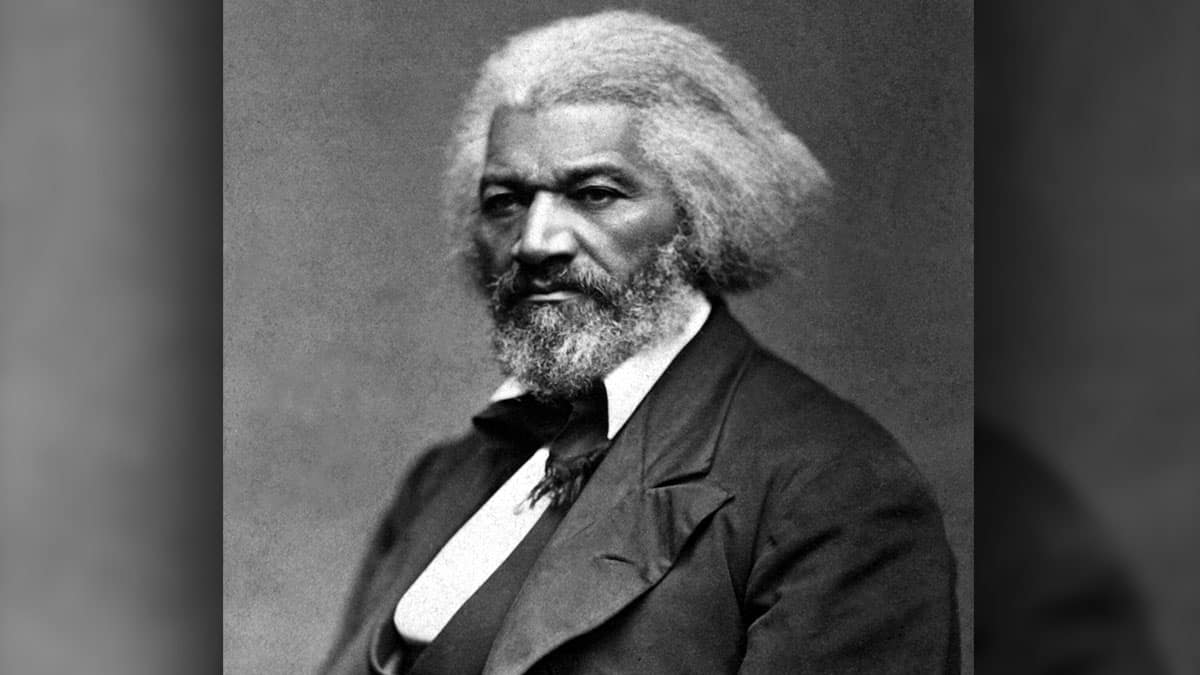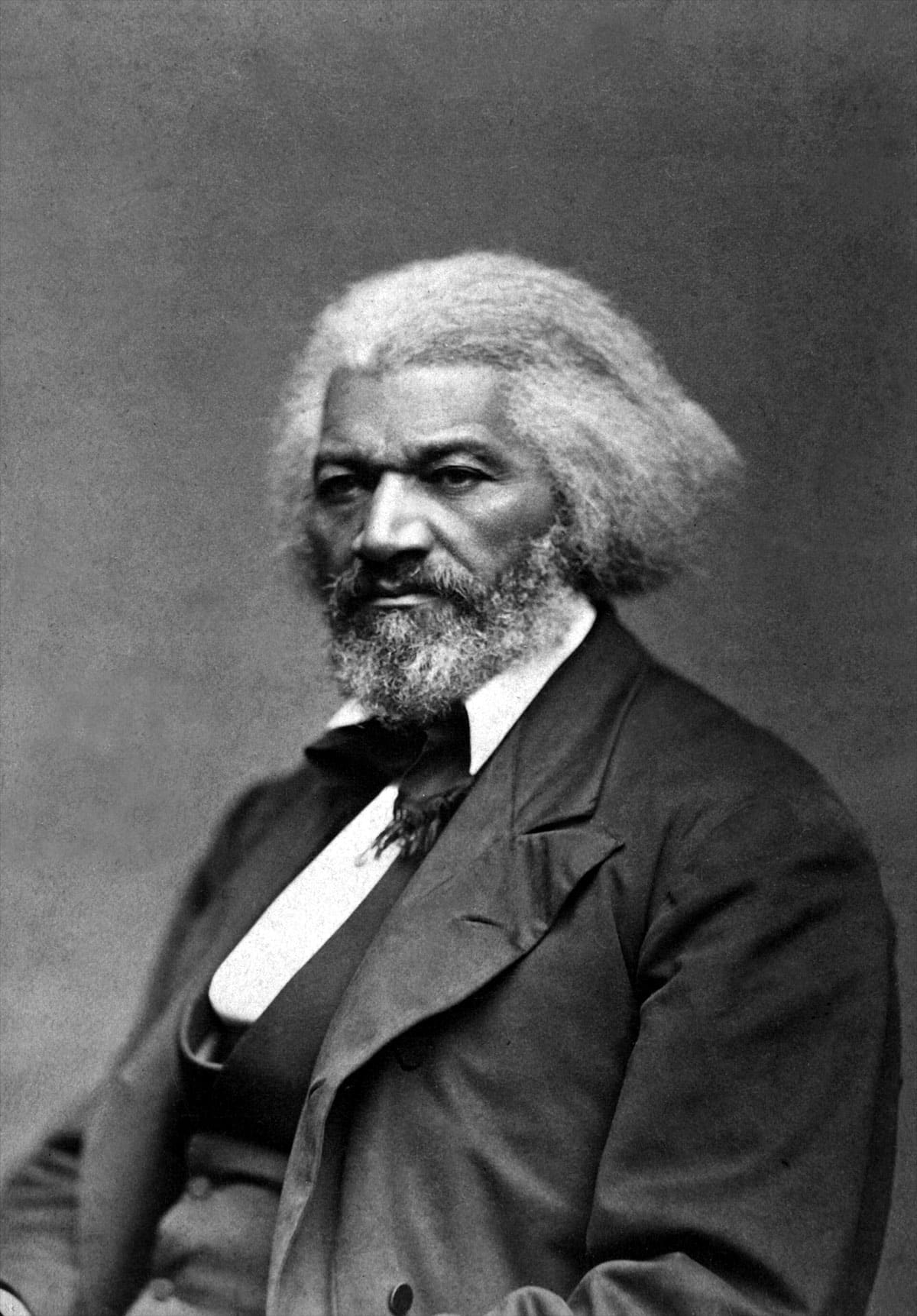Mississippi Today
On this day in 1841


Dec. 3, 1841

Frederick Douglass founded and edited his first antislavery newspaper, “The North Star,” in Rochester, New York. The publication title referred to Polaris, the bright star that helped guide Black Americans escaping slavery: “To millions, now in our boasted land of liberty, it is the STAR OF HOPE.”
He explained in this first issue that he desired to see “in this slave-holding, slave-trading, and negro-hating land, a printing-press and paper, permanently established, under the complete control and direction of the immediate victims of slavery and oppression … that the man who has suffered the wrong is the man to demand redress,—that the man STRUCK is the man to CRY OUT—and that he who has endured the cruel pangs of Slavery is the man to advocate Liberty.”
The publication also sought to “promote the moral and intellectual improvement” of people of color. He championed not only for the freedom of those enslaved, but for women's rights as well with the motto, “Right is of no sex. Truth is of no color. God is the father of us all, and all we are brethren.”
In 1851, the paper merged with the Liberty Party Paper from Syracuse and became known as Frederick Douglass' Paper. The paper closed during the Civil War, and in 1870, he moved from Rochester to Washington, D.C., and became part owner of the New National Era, which attacked the rise of the Ku Klux Klan and the mistreatment of and violence against Black Americans throughout the nation. His sons ran the newspaper until it folded in 1874. Because of a fire, no known collection exists of all of Douglass' newspapers.
This article first appeared on Mississippi Today and is republished here under a Creative Commons license.
Did you miss our previous article…
https://www.biloxinewsevents.com/?p=310887
Mississippi Today
On this day in 1896


MAY 18, 1896

The U.S. Supreme Court ruled 7-1 in Plessy v. Ferguson that racial segregation on railroads or similar public places was constitutional, forging the “separate but equal” doctrine that remained in place until 1954.
In his dissent that would foreshadow the ruling six decades later in Brown v. Board of Education, Justice John Marshall Harlan wrote that “separate but equal” rail cars were aimed at discriminating against Black Americans.
“In the view of the Constitution, in the eye of the law, there is in this country no superior, dominant, ruling class of citizens,” he wrote. “Our Constitution in color-blind and neither knows nor tolerates classes among citizens. In respect of civil rights, all citizens are equal before the law. The humblest is the peer of the most powerful. The law … takes no account of his surroundings or of his color when his civil rights as guaranteed by the supreme law of the land are involved.”
This article first appeared on Mississippi Today and is republished here under a Creative Commons license.
Did you miss our previous article…
https://www.biloxinewsevents.com/?p=359301
Mississippi Today
Renada Stovall, chemist and entrepreneur
Renada Stovall sat on the back deck of her rural Arkansas home one evening, contemplating life when she had a life-altering epiphany…
“I gotta get out of these woods.”
She heard it as clear as lips to her ear and as deep as the trees surrounding her property. Stovall's job as a chemist had taken her all over the country. In addition to Arkansas, there were stints in Atlanta, Dallas and Reno. But she was missing home, her parents and friends. She also knew, she needed something else to do.
“I thought, what kind of business can I start for myself,” said Stovall, as she watered herbs growing in a garden behind her south Jackson home. Some of those herbs are used in her all-natural products. “I know when I lived in Reno, Nevada, where it's very hot and very dry, there really weren't products available that worked for me, my hair, and my skin suffered. I've got a chemistry degree from Spelman College. I took the plunge and decided to create products for myself.”

In 2018, Stovall's venture led to the creation of shea butter moisturizers and natural soaps. But she didn't stop there, and in December 2022, she moved home to Mississippi and got to work, expanding her product line to include body balms and butters, and shampoos infused with avocado and palm, mango butter, coconut and olive oils.
Nadabutter, which incorporates Renada's name, came to fruition.

Stovall sells her balms and moisturizers at what she calls, “pop-up markets,” across the state during the summer. She's available via social media and also creates products depending on what of her ingredients a customer chooses. “My turmeric and honey is really popular,” Stovall added.
“The all-natural ingredients I use are great for conditioning the skin and hair. All of my products make you feel soft and luscious. The shea butter I use comes from West Africa. It's my way of networking and supporting other women. And it's my wish that other women can be inspired to be self-sufficient in starting their own businesses.”





This article first appeared on Mississippi Today and is republished here under a Creative Commons license.
Mississippi Today
On this day in 1954
MAY 17, 1954

In Brown v. Board of Education and Bolling v. Sharpe, the U.S. Supreme Court unanimously ruled that the “separate but equal” doctrine in Plessy v. Ferguson was unconstitutional under the 14th Amendment, which guaranteed equal treatment under the law.
The historic decision brought an end to federal tolerance of racial segregation, ruling in the case of student Linda Brown, who was denied admission to her local elementary school in Topeka, Kansas, because of the color of her skin.
In Mississippi, segregationist leaders called the day “Black Monday” and took up the charge of the just-created white Citizens' Council to preserve racial segregation at all costs.
This article first appeared on Mississippi Today and is republished here under a Creative Commons license.
-
SuperTalk FM6 days ago
Martin Lawrence making 3 stops in Mississippi on comedy tour
-
Our Mississippi Home5 days ago
Beat the Heat with Mississippi’s Best Waterparks
-
SuperTalk FM2 days ago
State auditor cracking down on Mississippians receiving unemployment benefits
-
Our Mississippi Home6 days ago
Charlie’s U-Pik: Opening Soon for the Summer Season
-
Mississippi News Video4 days ago
Jackson has a gang problem
-
Kaiser Health News5 days ago
Medicaid ‘Unwinding’ Decried as Biased Against Disabled People
-
Local News1 day ago
Family files lawsuit after teen’s suicide in Harrison County Jail
-
Mississippi Today3 days ago
On this day in 1950










































